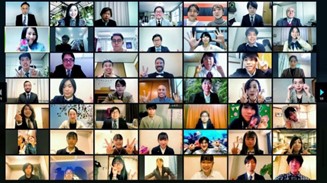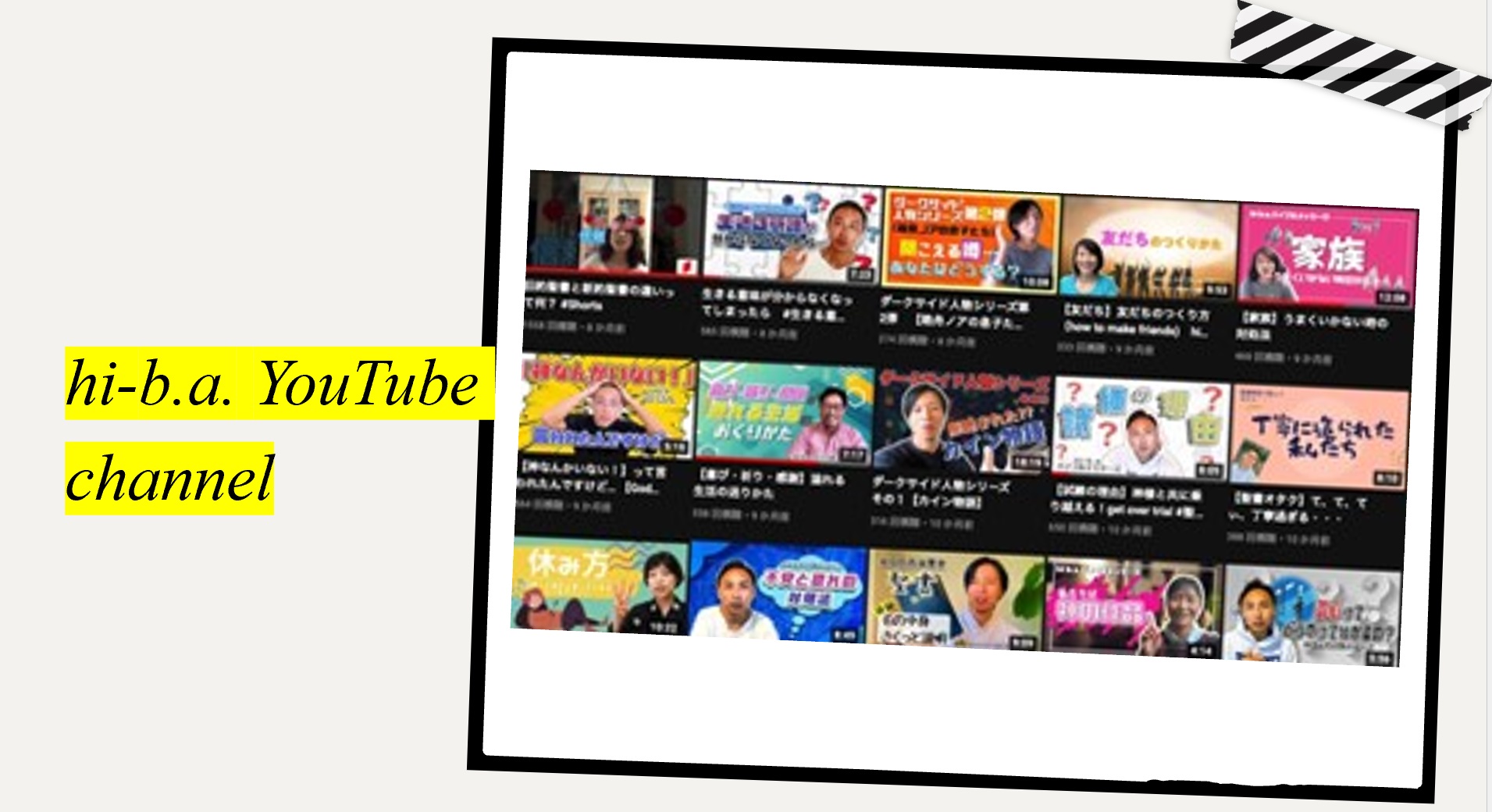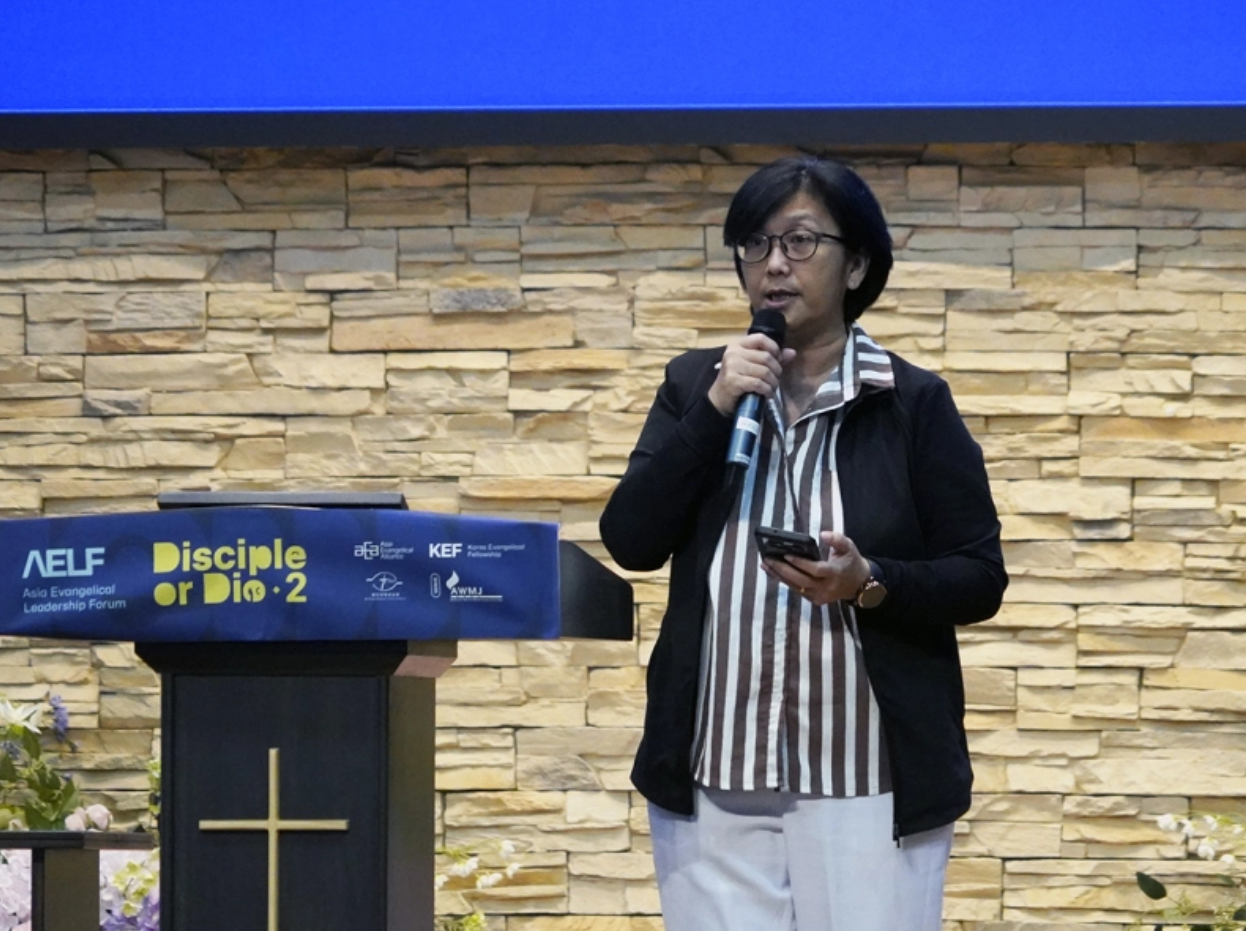When the coronavirus pandemic first broke out, the Japanese government ordered that all schools throughout Japan be closed. High school students had no choice but to study in isolation. Alone at home, they had to write daily reports. School events that students had looked forward to were all cancelled, such as Sports Day and once-in-a- lifetime school trips. Even if they wanted to share their disappointment with others, they couldn’t meet up with their friends. Not only that, some students hadn’t had a chance even once to go to their school, so they hadn’t made any friends yet. It was in this environment that hi-b.a. started online ministry with a twofold desire—to share the gospel with students studying at home alone, and to provide those in isolation a Christ-centered place where they could feel a sense of belonging.
In this article, I would like to share specifically about our online Zoom meetings and our online YouTube ministry. In our Zoom meetings, students would join online from wherever they were on weekday evenings. We sang worship songs together, read Scripture, exchanged updates, and prayed together. High school students from all across Japan (and at times from overseas) joined in and encouraged each other. Because the number of high school age Christians is in decline in Japan, isolation is a common problem that high schoolers face. Being the only Christian in a school or the only young person at a church meeting is not unusual. Meeting other high schoolers online who share in the same faith can be a huge encouragement. One student said, “I didn’t know there were this many Christian high schoolers in Japan!”
We also started a YouTube ministry when the pandemic broke out. In this ministry we posted messages on our YouTube channel. Up until then, high schoolers had only had the chance to hear the gospel if they attended a meeting or event. But YouTube enabled students to hear messages whenever it suited them and choose topics that interested them. On our YouTube channel, we chose titles that were appealing to high school students and that they would want to share with others. Our staff would check the analytics of the videos to see which sections were the most appealing, and used that information to improve our next video.
In addition to the above, we also used the LINE app to send Bible verses by text and we broadcast audio messages by radio. (Some high-schoolers have been worried about their per-packet charges, so we are trying to find ways they can have access to the Scriptures we send without waiting to pick them up when they’re on a Wi-Fi connection.)

Online ministry has taught us the following two things:
First, access to God’s Word does not need to be limited. Up until now, the sharing of Scripture has been restricted to a particular place and time. But through the use of an online platform it is avail- able to anyone. This gave people the opportu- nity to join a meeting at any time. They could listen to sermons at a time of their choosing. This gives us a similar joy to what Martin Luther must have experienced when he translated the Scrip- tures, making God’s Word available to many.
Second, we need to seek ways to best convey the message. Just as Paul “became all things to all people“ (1 Corinthians 9:20) so that he could reach certain people, we also must understand the culture and trends of today’s high schoolers in or- der to reach them. In Japan, where the declining birthrate and aging of the population continues, high schoolers are bound to face even greater spiritual isolation. We would be grateful if people from all around the world would pray for the sal- vation of these young souls and of the Japanese people.
By Fumika Mizunashi, Staff of High-school Born Againers
Translated by Grace Koshino
Originally posted on Japan Evangelical Association / Japan Update Autumn 2022




